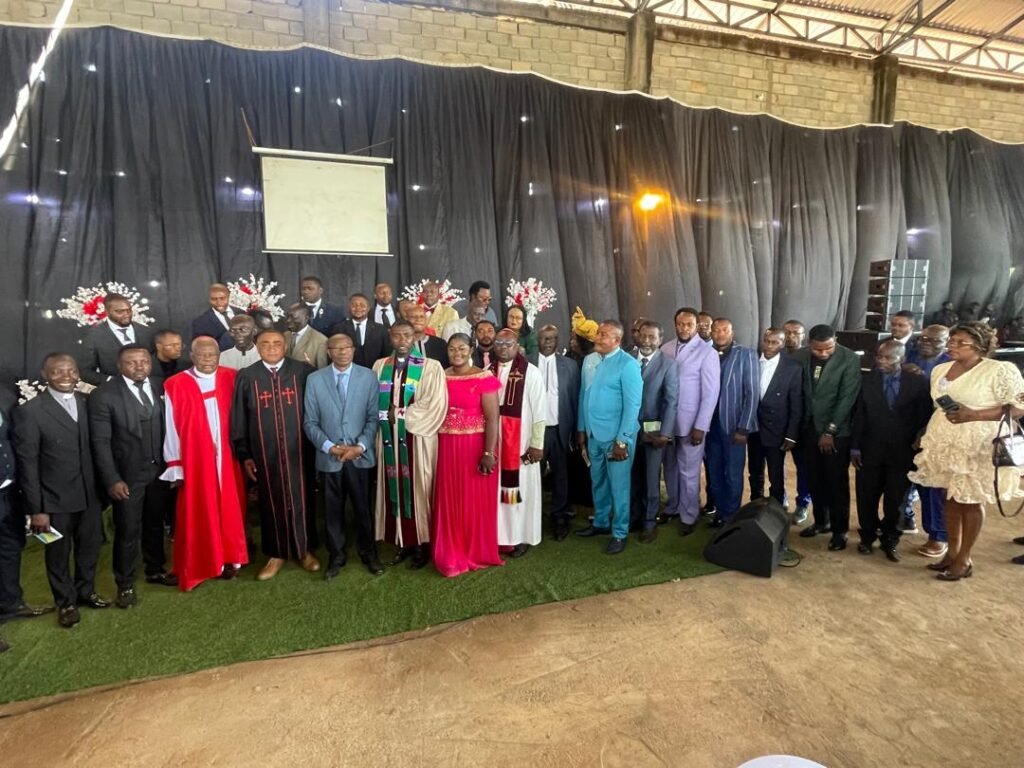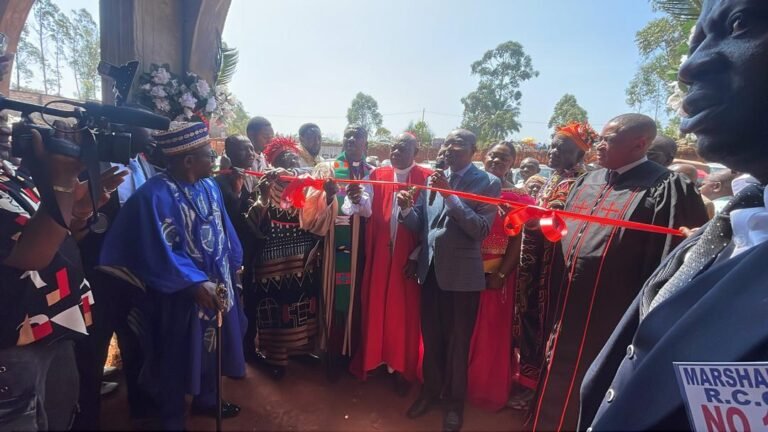Bamenda- In the heart of war-torn Bamenda, where grief and resistance have become the rhythm of daily life, a grand ceremony unfolded last Sunday with the dedication of RAMAH Cathedral, also known as the Mountain Top Cathedral. What should have been a moment of spiritual soberness instead sparked outrage and soul-searching among many in the city.
The event, led by Pastor Warah, marked the unveiling of a purported 15,000-seat sanctuary. Yet, even the scale of the cathedral is questionable, with congregants doubting its actual capacity. As the ceremony progressed, skepticism grew over whether the day was truly about honoring God or rather a display of power, influence, and showmanship by the presiding pastor.
The discontent peaked when Lele La’Afrique, took center stage. Introduced with effusive praise by Pastor Warah, the governor was lauded as a “God-fearing leader” committed to peace and development. Warah even quoted scripture: “When the righteous are in authority, the people rejoice.”
For many observers, the irony was palpable. There has been no rejoicing in Bamenda for over eight years. The city, like much of the Southern Cameroons/Ambazonia, has been trapped in the throes of war—its streets stained with blood, its people subjected to unspeakable horrors. The same governor now celebrated as a man of virtue and peace has presided over an administration notorious for its brutality. His tenure is marked by massacres like those in Pinyin, Bali, and Ngarbuh—atrocities seared into the collective memory of the region.
As La’Afrique took the microphone, his opening remarks deepened the unease. Instead of focusing on the solemnity of the occasion, he recounted how his administration had monitored Pastor Warah’s ministry from its early days at the Congress Hall. “I started knowing him through reports,” the governor said, adding, “You can imagine what type of messages I received about him.” His words implied not admiration, but surveillance—a stark reminder of his government’s reach and control.
The governor’s tone grew more self-congratulatory as he credited his appointment to Bamenda to divine inspiration attributed to Paul Biya, Cameroon’s president. Before concluding, he expressed gratitude to the pastor for contributing to the area’s “development” by building the church.
The event reached its most contentious point when La’Afrique, flanked by his government entourage, cut the dedication ribbon—a role many supposed should have been reserved for a senior clergy member. The pastor’s choice to elevate the governor to this position of honor left a bitter taste in the mouths of many attendees.
Criticism of both the pastor and the governor has been swift. For Bamenda residents who have endured nearly a decade of war, the sight of government officials—symbols of their oppression—being celebrated in a sacred space felt like an unforgivable betrayal.

“What a chilling shame that we give room to the very planner and supervisor of the cold-blooded killing of our innocent children to stand on the pulpit and call God’s name?” one observer lamented. Another added, “How can Christians bow to a shameless, unrepentant murderer? The pastor calls him ‘father’ because he wants blood money!”
The symbolism of the ceremony was impossible to ignore. A pastor meant to shepherd his flock through faith and resistance has seemingly aligned himself with the very powers that have brought suffering to his congregants. In a region where thousands have died, hundreds of thousands have been displaced, and countless more have fled as refugees, this act is seen by many as a betrayal of the people’s pain.
“My heart pounds and bleeds seeing this unfold in my hometown,” one deeply shaken observer shared. “I cry for our children whose blood has been shed for freedom from these people. What an aberration.”
The RAMAH Cathedral dedication was far from an inspiring moment of divine celebration. It turned into a grim reflection of the disconnect between the church leaders and the plight of their people—a reminder that even sacred spaces have become so co-opted by the politics of power and survival. In a time of war, where the wounds of oppression are still raw, the actions of those who claim to lead spiritually must be weighed carefully, lest they deepen the divides they are meant to heal.

